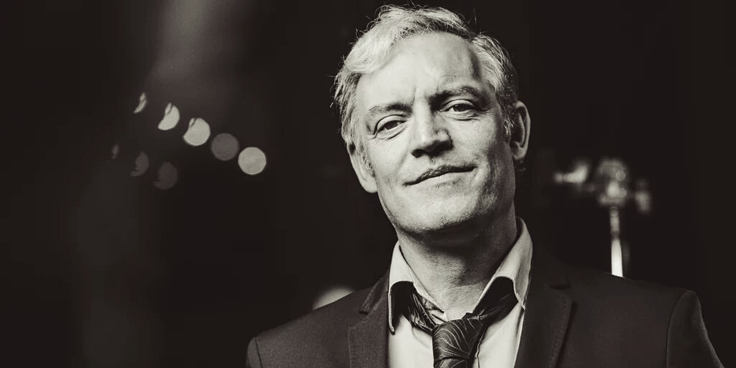
Neil McCormick is the Daily Telegraph’s chief pop and rock music critic. He is an author, radio pundit and television presenter, with his own music weekly interview show Neil McCormick’s Needle Time broadcast on Vintage TV. None of this, however, remotely compensates for being a failed rock star, haunted by witnessing his friend Bono rise to global superstardom.
Neil attended Mount Temple Comprehensive in Dublin with members of U2 and was a singer in several bands, including Frankie Corpse & The Undertakers (1978), The Modulators (1979), Yeah! Yeah! (1980-83) and Shook Up! (1984-89). His musical misadventures are laid out in painful detail in his memoir Killing Bono (originally published by Penguin in 2003 as I Was Bono’s Doppelganger). A film of Killing Bono was released by Paramount in 2011. Neil collaborated on U2’s autobiography, U2 By U2 (Harper Collins, 2005)
Neil is about to release his fiction debut #Zero, which he describes as the story of “a pop star on the verge of a nervous breakdown.” Mark Millar recently caught up with Neil to find out more.
#Zero is your fiction debut. Tell me what is the book about?
It’s the story of a pop star on a big promo weekend having a crisis about whether he really wants to be famous. It’s just an excuse to write about stuff that I’m interested in which is pop, fame and the thirst for glory that we have in our society. Which is something I know a bit about myself. I’m interested in what drives the desire for fame, what aspect of the psyche or the make-up of a family lies behind it, and is it really a healthy thing? It’s dealing with serious issues but in a fun way. In a way, it’s the same things I wrote about in Killing Bono but with the freedom that fiction gives you to take things a little step further. When you’re in this business you see and hear things all the time, often stories that you can’t substantiate, stuff that goes on behind closed doors but because you are a journalist you are not quite inside the velvet cordon. So it’s a chance to write about that world in a way that you can’t write about it in a non-fiction music feature.
There was a time in the 70s when journalists were allowed to roam around with the rock fraternity. Before Nick Kent could shoot up with Keith Richards – and then they realized that Nick Kent might actually write about shooting up with Keith Richards. Nowadays it’s very hard to get really deeply behind the scenes but we know that the behaviour remains as bad and as fragile as ever. If I say to a famous musician that I’m writing about a pop star having a nervous breakdown they say “oh it sounds like the story of my life.” And they will proceed to tell you funny or dramatic stories about how fame impacted on them. Say the same thing to a PR and they say “that sounds like everyone I ever worked with.”
Is the story based on anyone you know or any experiences you have had or heard about in the music business?
The character is fictional, for sure. They say write about what you know and I’ve been around the music business, by intent and by accident all my life. So it’s an environment that I can write about with great confidence. But it is definitely a mad work of fiction.
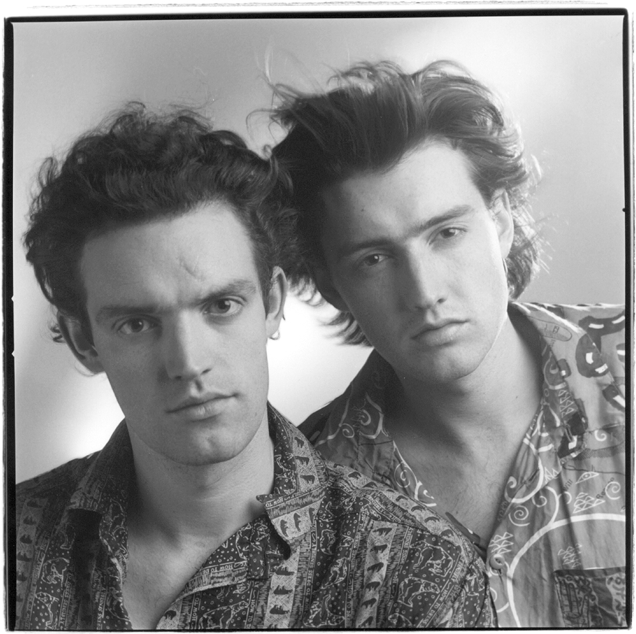
Is the book based now or in the past?
It is based now which was one of the great difficulties writing it. I had the idea about ten years ago but I have just been so busy. I was talking about doing it after my book Killing Bono but I got roped into doing the U2 by U2 autobiography and that took a couple of years. When I did start writing it, I would do a bit of work for a couple of months and then something would happen that would change the shape of the music business quite dramatically. One minute you’re writing about MySpace and then it’s gone, one minute you’re writing about CD sales and then they’re gone. At one point I thought “is anyone going to become a superstar in the old form anymore?” because it seems to be fading out. So then I had to try and project a year into the future to make it a little bit more imaginary because since starting to write this book and finishing it the music business has changed almost beyond recognition in the music industry has changed almost beyond recognition in this century. The music industry has changed almost beyond recognition in this century.
Was it an enjoyable experience writing the book?
Yeah, it was phenomenally enjoyable. I write all day, I’m working on something all the time and I write a ridiculous amount because the music journalism business has changed. There’s no more hanging around writing 7000-word features about whatever takes your fancy. You are in there knocking out obituaries, writing reviews and knee-jerk reactions to albums that nobody has let you hear. We are all operating on Twitter time, everything is immediate and must be done now. The world of print and news media has collapsed, in some ways even worse than the music industry did, so nobody wants to pay anything like they did in the past. The end result is you write far more and you write much faster. So it takes something to make you want to go back to your office space at the end of a working day and write something else that nobody is even paying you for. But there is a freedom that you have writing fiction that is liberating.
You are not tied to the facts, so you can look for a different way, to tell the truth. Your imagination starts to run riot. The experience of writing this unleashed something that was, at its best, completely joyous.
It’s a strange thing because we live in such a reward-based society, if you don’t have your work out in the public, and have people applaud it, it’s almost like it doesn’t matter. Yet as somebody who had a career as a failed musician, most of the songs that I ever wrote never really got out into the wider world. But that doesn’t mean they don’t matter to me. On some level, this has been the greatest pleasure I have had writing in my entire life and I really want to get it out into the world because it might seem like a waste otherwise. But the truth is I have already got an enormous amount from it myself.
I read the book comes with a soundtrack.
In an early version of the book, it was more meta-fictional, full of real pop stars. But I started to worry about the legal fees! So I started inventing new pop stars instead, which was tremendous fun. I am a musician and songwriter and so if I write a title for an imaginary band I can’t help but have that song kicking around my head. So I have written a few songs. I haven’t recorded them yet because this is a crowd-funded project. But I am going to farm them out to a few friends and see if we can create the imaginary soundtrack I hear in my head.
If people want a copy of the book they can go to unbound.com and pledge. What sort of goodies do you have on offer?
Unbound.com is a crowdfunding for publication website. We have got used to crowdfunding in the music business because, as record companies collapsed, a lot of different models were being invented to connect artists and audience, and crowdfunding is one. They haven’t really got used to it in the publishing business but it’s becoming a reality. The publishing business is in a powerless state itself, its worse in many ways than the music industry. The amount of books that make a profit is tiny, something like 8%. In a way, the music industry has farmed out A&R, so bands launch and fund themselves and make their own videos, and as soon as they start having any kind of success the majors sweep in and scoop them up. Unbound.com is similar. It is tied in with established publishers, so the book will eventually come out in the normal field but first, the writer has to do all the running.
The crowdfunded book establishes whether there is public interest. You write the book, it gets edited and proofread, covers are designed, it might even get reviewed and then an established publisher can just pick up the ball and run with it. So you have to sell it and pull people in and try and think about what they might like. So I have conceived all kinds of things that people might like. You can go from a plain hardback to a signed hardback all the way up to being a patron and having your name on it if you really want to cough up the big dough. The pledge that seems to be getting the most interest is for paraphernalia. I’m sitting here right now looking out into my room and it is overstuffed with the things that I am sent or acquire as I go about my business. CD’s arrive every day, vinyl, books and packages with strange things in them, bottles of whiskey made by AC/DC or Snow Patrol, sets of headphones stamped with some artist you have never heard of. I have got a bag with David Bowie – Five Years hanging right behind me. I have got lanyards given to me to wear from going backstage at gigs. I have got a curtain of them. There is a lot of U2, obviously, but there’s everything there, Nick Cave ones and Glastonbury ones and so on. So I thought I was just getting rid of the tat crowding my office and it turns out my tat is highly desired. So you can sign up for a book and get a great big package of rock n roll tat.
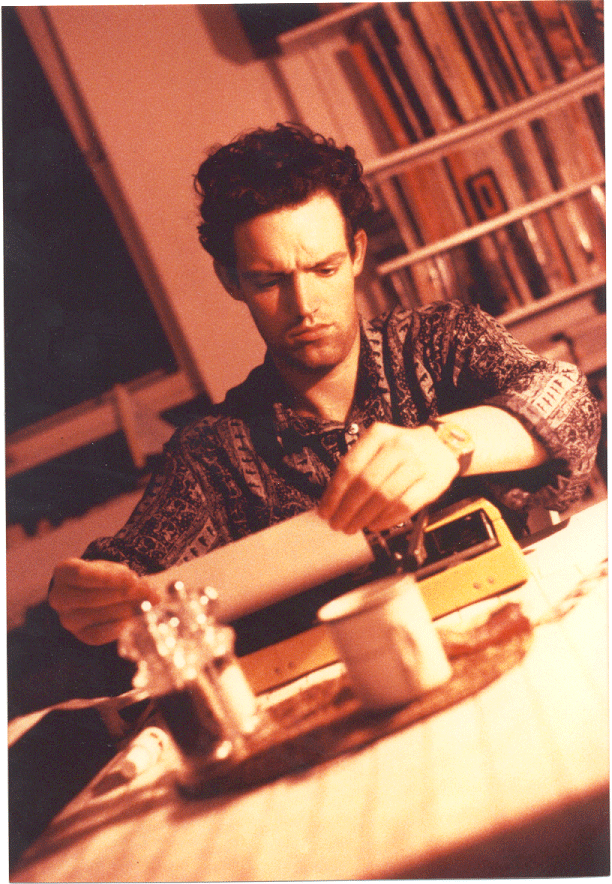
What was it like working for Irish Music magazine Hot Press back in the day?
I started working for Hot Press in 1978. I left school and went to Art College and got a job with Hot Press at the same time in the design department. Hot Press was a fantastic magazine and it still is. To those of us looking across the Atlantic and listening to John Peel and watching Top of the Pops, Ireland seemed very backwards in the seventies. I’m talking about Southern Ireland but I’m sure it was the same in the North. Bands did not come and play in Dublin, the major tours usually didn’t reach us. It was hard for a smaller circuit to thrive because the showbands still dominated. You know, in some ways, given the sexual politics, the domination of the church in Irish education and social and political life, and the prevailing showband scene of covers bands going around playing the hits, Ireland in the 70s was still like Britain in the 50s. It was still waiting for things to change with a rock n roll revolution. Obviously, there were some great local heroes such as Van Morrison from the North or Thin Lizzy from the South but there wasn’t much to aspire to. So we looked to England and when punk rock happened it hit a bunch of us in a very strong way and a scene erupted in Dublin. It was a really small scene, everybody knew everybody else.
I was 16 years old in 1977 and formed a band called Frankie Corpse & the Undertakers. We didn’t really know what punk rock was; we couldn’t get half the records and couldn’t hear them. Often you just read about them in the NME and imagined what they might sound like. I remember I was driving around in a bus with Frank Kearns (who was the ‘Frank’ in Frankie Corpse and the Undertakers, he was a great friend of U2’s Larry Mullen and then Frank went on to form Cactus World News) and he saw this graffiti saying ‘H Block’ and he started cheering and I said “Frank I didn’t know you were a Republican supporter.” And he said, ” I’m not I thought they were a punk band.” (Laughs ) Just because of the graffiti.
That’s why the Irish bands that emerged from that scene (of which U2 are obviously the most famous) were very different to the British bands. So I got a job in Hot Press basically because I was a punk. They didn’t tell me that at the time but they were all hippies. It was a very small office full of hippies trying to write about Irish punk. They didn’t really know what to make of it and in walks, a snotty 17-year-old art student with short hair and a leather jacket and I got hired. It was just a wonderfully exciting time. I got such an education there from those people in Journalism. I had a leather jacket, I had a job in a music magazine, I had a band and a girlfriend … I mean come on, it was the best time of my life.
I suppose when a band like U2 came along they were a complete gift for Hot Press to write about.
Hot Press was waiting for something great to come along. It supported all the Irish artists but U2 in 1979-80 became such a hot band. They were just so great live. They only had a couple of local singles but were already playing big venues with a passion and belief and focus. It was clear to everybody that was going to gigs, ordinary people, just punters on the streets in Ireland that this was a special band and that they were going somewhere new – and so it was utterly clear to the journalists in Hot Press who were in love with music. Bill Graham who was the greatest Irish music journalist possibly ever, and he was the first person to notice U2. He was supporting them when they were a total baby band. I was supporting them because they were my friends. They were my first introduction to live electric music when they were called Feedback and they were playing the school gym in Mount Temple in 1976, playing Bay City Roller songs.
And so I saw them on this accelerated path but I didn’t really know that they were different to other bands because they were kind of all I knew. In fact, it was a bit surprising to me when I was working at Hot Press that U2 were suddenly the band that was blowing up. They would come into the office and they were like “what are you doing here?” and I would be like “What are you doing here?” because we were school friends really. They were white-hot, it was an amazing time and it changed everything. The Boomtown Rats had shown that the path could be beaten across the road to the UK but U2 beat it across the world. As you moved into the 80s, the Celtic Tiger starts to roar and U2 are its symbol, suddenly Ireland was roaring and the scene had changed completely. People were going over to Ireland to discover rock bands which never happened in my day.
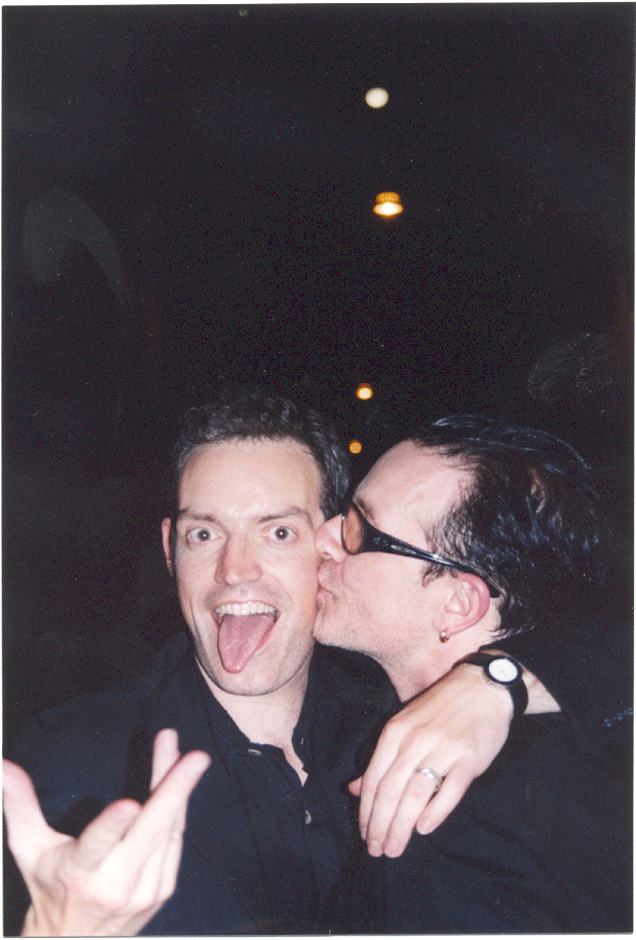
Your memoir I Was Bono’s Doppelgänger was a big success and was also made into a movie. Were you nervous about what Bono and the band would think of it?
No (Laughs). I don’t remember being nervous but I probably was. I’m a bit nervous about this book now because I have put Bono in it and he hasn’t read his part yet. Bono was very supportive of Doppelganger. We are old friends. He wants the best for me just like I want the best for him. I was confident that I was writing about U2 in a positive way. It was more about myself that I was digging deep into and exposing. Bono is a beautiful man with a lot of humour. I think the world knows that now but they kind of didn’t know it then and I wanted to get that across. He is a bit pious because he is deeply religious and very driven but he is also very funny and good fun to be around. I felt I got that across.
He gave the book its title. I came up with Bono’s Doppelganger but we it came out in America they didn’t understand the title. They didn’t know what a ‘doppelganger’ was. Bono said: “you should call it Killing Bono, I know some people who would buy that T-shirt.” I think it is a better title. He’s also given me the title of the new book. I was calling it ‘Motherless Child’ because rock n roll is full of parentless children, an absence that drives the engine of fame. And I love that song Motherless Child, I thought that was a beautiful title but my agent was telling me it sounds like a ladies book.
So I didn’t have a title and I was talking to Bono, and when I told him the main character was called Zero he said: “that’s your title right there, it’s a great title.” I figured by then he maybe knew what he was talking about because he has come up with more good titles than I have with more success (Laughs). I don’t normally like the idea of naming your book after the main character which is why, at the last possible minute, I added a hashtag.
It’s quite amazing that a group of friends who went to Mount Temple Comprehensive School including yourself, U2 and Gavin Friday all forged successful careers in the creative business.
I think there are a couple of elements to that. It was an exciting time in 1977-78 creatively. There were changes going on, a generation emerging that was shedding old Ireland and trying to grapple with a new creative vision of Ireland and so some interesting characters emerged from that. But also U2’s success has rubbed off on everyone else, there is no doubt about that. It rubbed off on the whole of Ireland. There are many bands that got signed on the back of U2, Ireland became cool, journalists were going over there looking for the next big thing, record companies were going over, and films were being made there. Irish people weren’t cool in the 60s and the 70s. I remember when Boyzone and The Corrs came along thinking “this is amazing! We have sex symbol Irish pop stars” That was unimaginable in my time. So there was a sea change going on.
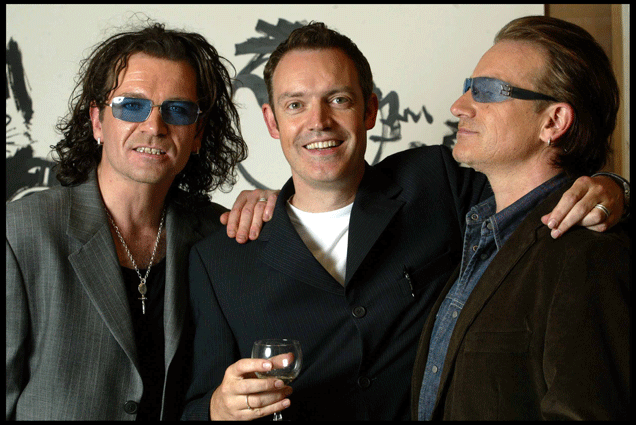
Neil with Bono and Gavin Friday
The class that I was in, in Mount Temple, it’s not just the people that you know about that have had successful careers. A lot of people went on to do well in whatever field of endeavour that they were in. There probably is a kind of U2 effect, a ripple effect, an inspirational effect and a networking effect that helped everybody.
I really enjoy your Vintage TV programme Needle Time. Who would be your dream guest?
I would love to get Bono on there but that’s not likely to happen (Laughs). Vintage TV is a great channel, an independent music channel dedicated to older music for older listeners. It’s got the resources and space to cover things properly. With most music interviews on TV, you’re lucky you if you get 5 minutes, a couple of sound bites and a joke. We’ve got an hour-long show, it allows you to draw people out. When you’re talking to a music audience about music, artists can relax into the comfort of the place and tell the real stories. Because we are still a small channel, superstars can be a bit elusive. We have had huge stars, like Graham Nash or Jimmy Webb who are incredible talents, Meat Loaf and Gary Kemp and Bob Geldof. But almost nobody gets the two guests I would want most, which would be Bob Dylan and Bruce Springsteen. I’ll keep asking though. I might have to wait until U2’s career is on the slide and they can use my show as a springboard for their comeback.
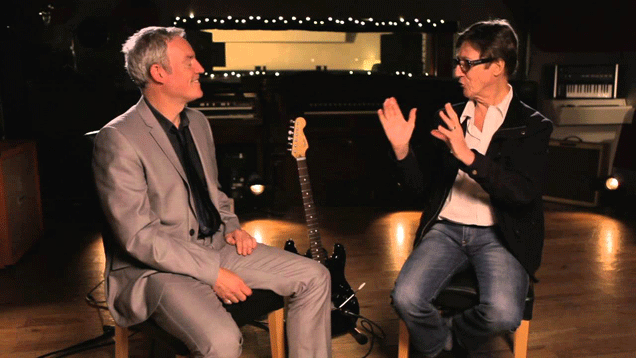
I enjoyed your interview with Sinead O’Connor on Needle Time. It was really interesting and you both got on really well. But it didn’t go as well the very first time you interviewed her years ago. What happened?
Sinead O’Connor is such an interesting person. Or Magda Davitt as she prefers to be called now. It’s true that I used to say she was my worst ever interview. It was a disastrous encounter when I was just starting out. It was really the end of my band years. I had been working for Hot Press, I was playing in a band, I was in London but I really wasn’t getting anywhere. I was having a very hard time, the band broke up and domestically it was time to start bringing in some money and I thought “I’m going to have to become a writer.” And Sinead was the first time I managed to get somebody (I think it was the Sunday Times) to pay for me to go and do a big interview. And it was absolutely terrible! I kind of thought I knew Sinead because I used to see her around the Dublin scene right back in the beginning when she sang with In Tua Nua but she just wasn’t interested in doing an interview. She ate a curry and sat there and answered me in monosyllables. I got through all my questions in zero time and then I said to her “this has gone really badly. Why don’t I go out, you finish your curry and when I come back in we can start again.”
And she said “No! This isn’t like an interview, this is like a conversation on a bus.” (Laughs) It was pretty damning. It probably was though. Partly it was my inexperience but partly it was her whole antipathy to the idea of being interviewed. So I said, “ok that’s fine I’m just going to leave.” And then she said, “give me the tape because you are just going to make a fool of me.” I said, “you have done a fine job of that yourself.” Or words to that effect. So I was attempting to leave the record company when her PR appeared with Sinead behind her, pushing her at me, to try and get the tape from me. I had to basically hold it up very high because they were both short and they couldn’t reach it. I exited the record company with 2 women trying to grab my tape recorder out of my hand. So it was pretty bad. It doesn’t really get much worse. I wouldn’t interview her again for years but eventually, I thought she’s a major artist and we were both really young at the time. This is silly, why don’t I go and do this?
So I went to interview her at her home and she was just lovely and welcoming and we spoke about that interview and we laughed. She talked about how she makes music to survive, she has a dark background. When you talk about pop stars on the verge of a nervous breakdown she is one of the characters you have to throw into that mix of how a vulnerable person can find themselves through music. Music is their balm but it makes them famous and that throws the rest of the world at them and all their vulnerabilities become gaping wounds. That was Sinead at that moment in time. She was just thrown into a room with some stranger asking questions and nobody really explained to her why. So from an adult perspective, we both understand why something like that went horribly wrong. Now I don’t even think that was my worst interview, I can think of worse professional interviews where the people were bored with what they were doing and gave nothing and you have to work really hard to draw anything out of them. Sinead was just a vulnerable person in a difficult situation.
Other than your own books what is the best rock biography you could recommend?
There are some good ones. I used to have a busman’s holiday feeling about reading music biographies because I was reading and writing about music all day. But I’m just looking at my shelves and they are just stuffed with music books. I love Bruce Springsteen’s book, that its essential reading for somebody setting out in a band because he thinks and feels passionate about what he does and expresses it very well. I loved Robbie Robertson’s book Testimony about the years of The Band. Nile Rogers’s book is an absolutely amazing, revelatory autobiography. I like books that are written by insightful critics. Most rock autobiographies fall a little flat in the end because the early part of the career tends to be more interesting than the latter. But the artists themselves often feel that the latter part has been unjustly neglected and write way too much about it. Everyone went on about how Keith Richards – Life was a great book. Well, you know, its two-thirds of a great book and it’s a third of him waffling on about the rest of his career.
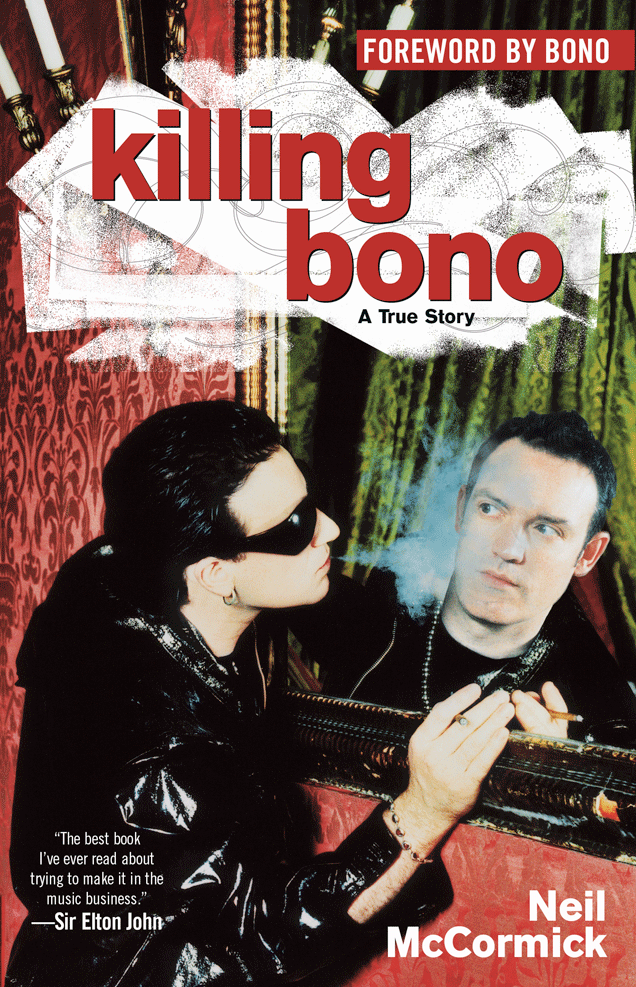
What have you been listening to recently that you could recommend?
I’ve liked a few records this year. They are not that obscure. I really like the Arcade Fire record, I really liked LCD Sound System album. The new Killers album is fantastic, it’s all killer no filler. A more obscure album I really liked this year was Courtney Marie Andrews – Honest Life which is a country-rock album that’s like Emmylou Harris meets Joni Mitchell. I loved the St Vincent album. I just got sent Dark Shadows and Rust by Pete Holidai’s band Trouble Pilgrims, so I’m looking forward to listening to that. He was in the Radiators From Space, who was a big inspiration to us starting out. There is always so many, my desk is piled high with so many records that I forget what I’m listening to. I have just reviewed Noel Gallagher’s Who Built The Moon and Bjork’s Utopia. Both fascinating in different ways, though I’ll probably never listen to the Bjork album again because it’s too much hard work. I’ve got the U2 album, which I will be reviewing next. And I love it, which is a relief, cos I’d hate to have to give them a bad review. I do play a lot of ambient music when I’m working because anything else interferes with my process of thought. So, in general, the room is wafting to the sound of Brian Eno or something with bleeps and bloops.
Is there a record that you always return to?
The Beatles – Abbey Road! I was born in 1961. The Beatles is where it all started for me. That album is just the ultimate band playing at the height of their abilities. And it’s got I Want You on the end of side one, Whoa! I heard that playing in a shop the other day and ended up having a long conversation about it with the shop assistant, who was half my age and just as passionate about it as I am.
You are a music journalist, author, and broadcaster. What gives you the most enjoyment?
It’s nice to switch from one thing to the other, I don’t know (Laughs). I like reading poetry. I like writing, I like a lot of things. My son gives me most enjoyment and that’s got nothing to do with music. I’m quite domestic in that respect. But I do go out to a lot of gigs. Sometimes music journalists complain about the amount that we have to go out. As you get older, it’s easier to stay in and read a book and watch TV and hang out with your family. I think I’ve seen 7 or 8 gigs in the last 2 weeks and at every point in every one of those gigs I’m standing there thinking “wow this is amazing.” I was at a Nick Cave gig recently, he is probably my favourite artist working right now, it was so astonishing, so involving, and you can’t help but feel you are experiencing something profound and you are so lucky to be there. And I didn’t even have to be there because I wasn’t even writing a review. So I guess I must really like music.
Would you swap it all to be a successful rock musician?
Yes, I would probably swap it all to be a successful rock musician because of the poetic expression of self that you are allowed. Mostly I am writing about other people. I love the conversation that I’m able to have with the world. Whenever I have got an opinion about something that I care about, I have got a place to spout off about it without going down to the pub and boring my mates. I feel like I’m in the conversation about music that’s gone on in Britain and Ireland and to some extent the world over the last few decades. But when you are a musician you’re conversation is different, it’s about your own art, your own creativity, your own expression and that’s the bit that has been quite stymied in myself. And that is what’s in the novel.
That’s the reason why, when I finished reviewing Pink Floyd, Bob Dylan, Lorde or Kanye West, when I’ve listened to the pile of records on my desk and written a knee jerk reaction because Radiohead have decided to release a 12 volume set and not played it to anybody in advance, and suddenly it’s all over the internet and you’ve got to have an opinion on it – when I have done all of that it can be quite exhausting. Often I feel like my brain is racing around at one hundred miles an hour all the time. And then I sit down and, instead of putting my feet up, I work on a novel or I write a poem. That’s because that part of the self still needs expression.
Get your copy of Neil McCormick’s latest book #Zero – A Pop Star on the Verge of a Nervous Breakdown HERE.

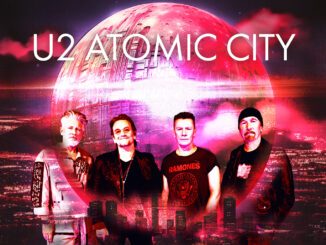

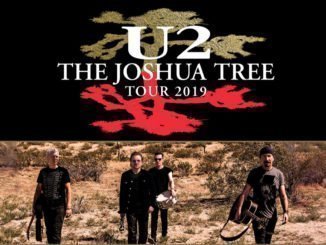

Be the first to comment